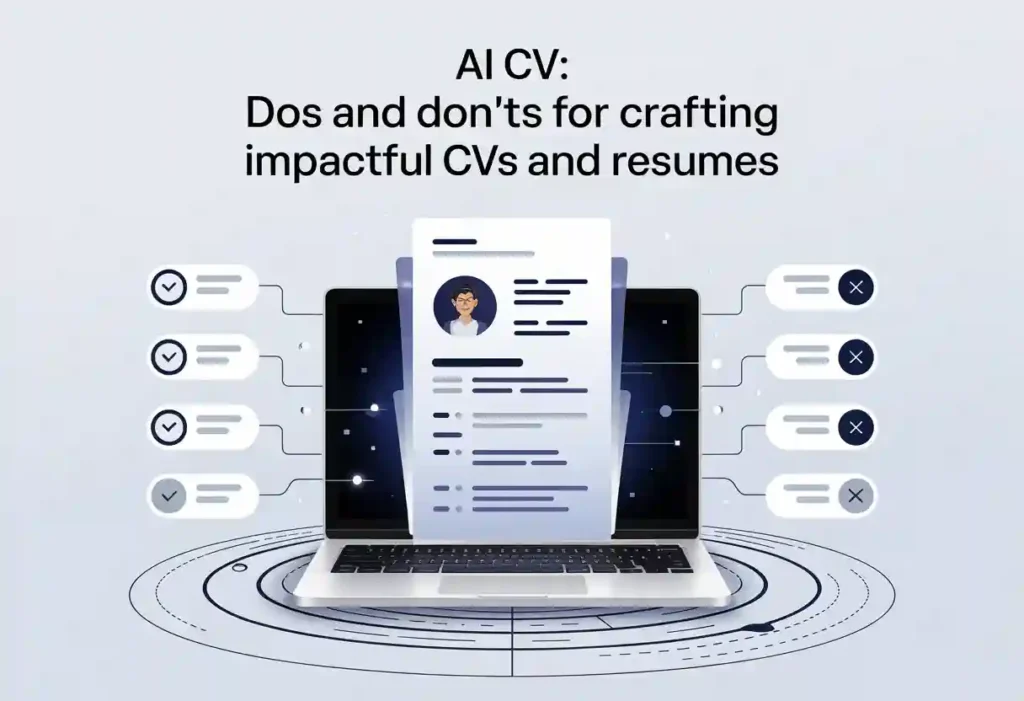Graduates’ and postgraduates’ employment rates fell for the second consecutive year in the UK in 2020.
Although skilled employment remains high for graduates, the job market is becoming increasingly competitive.

UK Graduate Unemployment Rates Increased
Having a degree is not enough. You must learn how to be employable.
There are several reasons to ask yourself how my degree is and how I can be more employable as a graduate.
Most people pay attention to the country’s unemployment rate; however, most agree that a lack of opportunities and high competition are the causes.
Let’s offer a different insight.
I have worked with countless job seekers.
Instead, the problem is that many students never learned how to be employable during university.
No company will hire you to reduce unemployment.
You need to have the employability skills that employers want and bring value to the company.
Thus, you must always think about how to be employable.
Now, assume you’re in a pool of equally qualified people who are changing careers or looking for entry-level jobs after graduation.
Every candidate has various certifications and skills, but you all have one goal: to find a job.
What makes you more employable than anyone else?
So, this year, focus on learning how to be employable.
Like this post?
Sign up for our blog updates and never miss a post.
We’ll send you A FREE job interview eBook as a thank-you.
How to be Employable With 5 Simple Steps
1. Upskill & Reskill
Why are employability skills critical?
Ultimately, the more diverse your skill set is, the more opportunities there are to apply what you know. This empowerment is a key benefit of upskilling and reskilling.
Therefore, learning new skills is never a waste of time. Every hour spent on upskilling or reskilling is an investment in your future employability.
Fortunately, there are several ways to learn employability skills online and part-time. This accessibility makes the process of upskilling or reskilling more manageable for everyone.
Let’s ask another question: what skills do you need to be employable?
Relevant job skills will depend on what industry you want to work in.
Start by narrowing your career search to a couple of options.
You can then research the skills you need for these positions by reading job descriptions or visiting the National Careers Service website.
Aside from specific job skills, several transferable skills will be helpful in almost any field.
We’ll come back to those skills later in this article.
TOP-TIP
Evaluate your skillset and understand what skills are missing from your CV.
Identifying what you need to work on.
Acting on this will help you become more employable and find a job faster.
2. Build Your Emotional Intelligence
Aside from hard skills and qualifications, employers look for emotional intelligence.
Intelligence Quotient (IQ) is a valuable asset.
But times are changing, and hiring managers now look beyond your IQ.
In most jobs, you’ll need to communicate with other people, be they co-workers or customers.
Many employers regard your EI as more important than your IQ.
A person with high emotional intelligence will be helpful to any employer.
Try to build yours and showcase it during the recruitment process.
Top Tip
Learning to identify and relate to other people is one of the most effective ways to make yourself more employable.
3. Know Your Greatest Strength
Every one of us is unique.
Even if a million sales candidates are in a room, each brings something different.
The same applies to any profession.
Imagine Michael Jackson as a folk singer or Bob Dylan singing punk.
Both would struggle for success.
When you want to know how to be employable, identify your greatest strength.
What sets you apart from other applicants? What makes you perfect for the job?
In other words, what’s your unique selling point?
Knowing your skills when applying for jobs and selling yourself in an interview is very important.
4. Tidy Up Your Online Profile
Many employers will look you up on professional platforms like LinkedIn or other social media accounts, so you need to be visible.
But also, be careful of your public presence.
You must smarten up your social media presence to make yourself more employable.
There’s nothing wrong with sharing photos with your friends, but do you want a potential employer to see your party shots before an interview?
Hopefully, your answer is no.
Remove inappropriate photos and comments, or ensure they are only visible to friends.
Top Tip
Make your profile look professional.
Connect and engage with people in the industry you want to work in.
Most importantly, don’t forget to sell yourself on your LinkedIn profile.
5. Have A Positive Attitude
You won’t go far with a poor attitude in the workplace.
The same applies to the job application and interview process.
It’s worth remembering that while you’re looking for a job.
If your application is indifferent, whoever reads it will notice.
Why would anyone give a lazy application a second glance?
Top Tip
Maintaining a positive attitude in your approach to a job hunt can boost your image, and that’s what makes you more employable.
Go Big or Go Home
This is one of my grandfather’s favorite expressions, and I want you to apply it to your job search this year.
There’s no point entering a job hunt half-heartedly. Put yourself out there.
Make time in your daily schedule to prepare your CV, draft cover letters, search for jobs, and network.
Remember that a poorly filled-out application is as practical as an unsent application.
Top Tip
Treat your job search and preparation as you would a job.
Prioritize it instead of filling in applications in your spare time.
Top Skills That Make You More Employable
Aside from working on your job hunt strategy and interview techniques, specific skills make you more employable.
Of course, several hard skills, such as knowledge of computer programming or proficiency in a second language, are relevant to a specific job.
Yet, soft skills such as creativity, cooperation, and an eagerness to learn are equally important.
Most soft skills are transferable – meaning that they’ll be helpful no matter which position you apply for.
Below, we’ve listed ten transferable skills to make you more employable:
- Interpersonal skills
- Teamwork
- Leadership
- Organisation
- Dynamic Learning
- Problem-Solving & Critical Thinking
- Basic Computer Skills
- Discipline
- Adaptability
- Dependability
Explore More Soft Skills: How to be Employable
- 268 Soft Skills (in 24 distinct categories) to Shout About in Your Resume or CV
- How to write a resume like a guru
What Makes You Employable?
Whether a recent graduate or switching careers, these simple steps will teach you “How to be More Employable.”
Some employability tips seem obvious, but it’s surprising how often you can overlook them in a job search.
Committing to your goals is as important as having the right skills and a positive attitude.
If you’re unsure how to be employable as a graduate, check out our other articles for more job-finding tips and expert advice.
Or, if you’re ready to begin the job hunt, sign up for CV Jury for updates and guidance.
Further Reading About How to Be Employable



